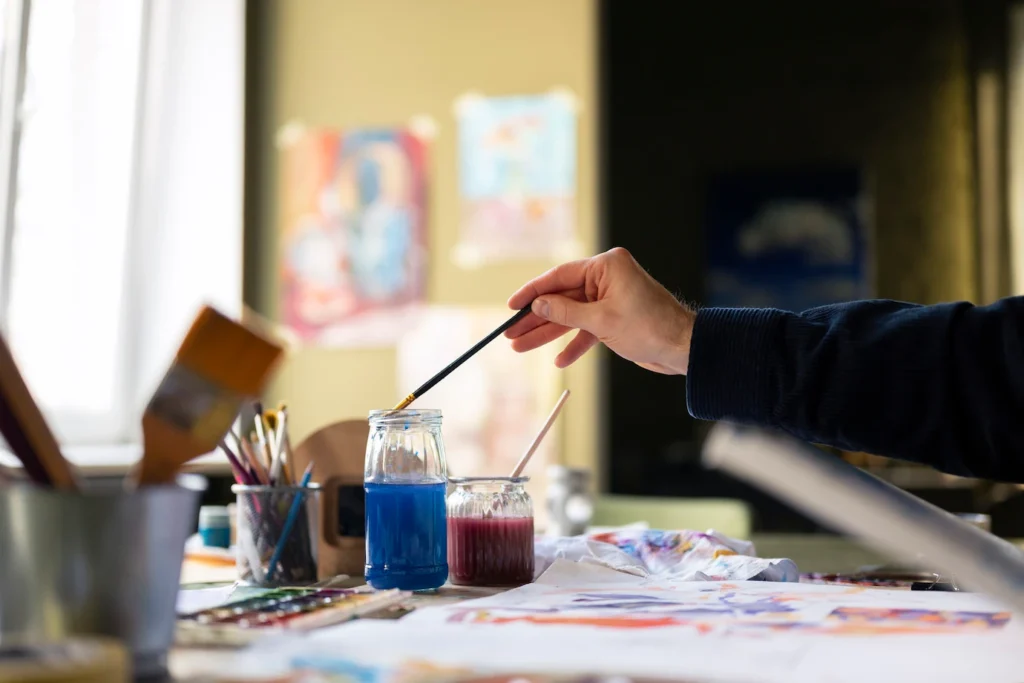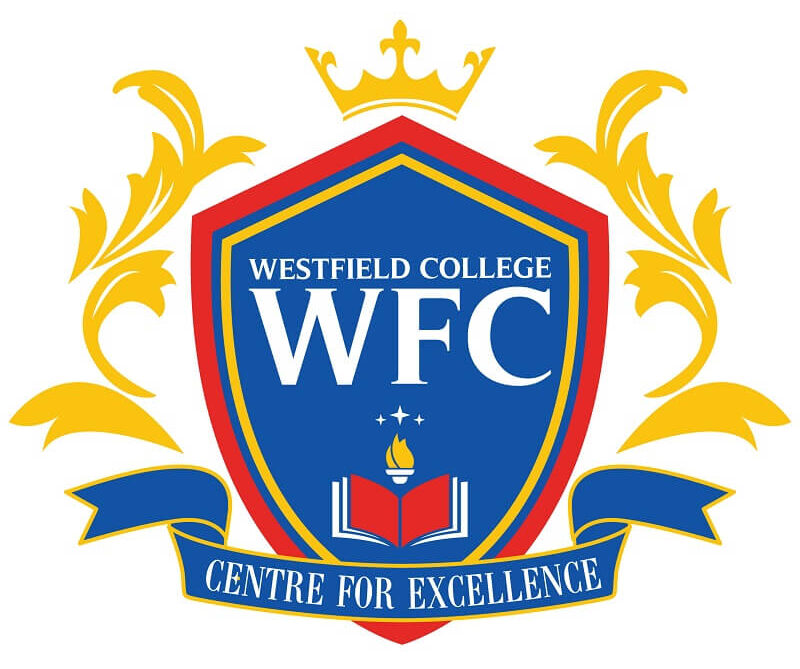My experience with Westfield College is great. The supervisor and the admin team are proactive and efficient.
MA Arts Practice (Arts, Health and Wellbeing)

Overview:
The MA Arts Practice (Arts, Health and Wellbeing) course will be of value to artists, creative practitioners, therapists, community workers and teachers, plus others with an interest in pursuing professional practice within the expanding and vital field of arts, health and wellbeing.
The course is located within the practical world of Arts and Health, where arts practitioners work on the improvement of health environments through arts interventions, or in raising awareness of health issues through the delivery of artworks and events, or through offering individuals and groups practical experiences/projects/workshops that aim to improve wellbeing. Our students reflect the range of creative practices within the field; a key element of the MA is the scope of projects undertaken with the NHS, arts organisations, social services, local authorities, charitable trusts, schools, and colleges. The course will enable you to develop professional skills and experience within relevant critical and contextual frameworks and will equip you with the tools and principles you need to succeed as arts, health and wellbeing practitioners.
Online application form
Information requested on this form should be completed in as much detail in order to process your application successfully. All fields marked * must be completed.
Apply Now
Entry Requirements
A good undergraduate degree in a related discipline such as art/design or other areas of creative practice, or a significant body of practical/professional work in the field of the arts, that demonstrates competencies equivalent to a Bachelors degree.
Applicants with appropriate qualifications in related fields such as teaching, art training, arts administration, occupational therapy, arts therapies, health sector management, arts and disability, social services, community work, youth work, or a period of professional employment in the field, will also be considered.
All suitable applicants will be contacted by the Course Leader for an informal chat as part of the consideration process. This could take place on campus or off campus via telephone or Microsoft Teams.
WHAT YOU WILL STUDY
You will develop new ways of looking at your own practice within the field of arts, health and wellbeing. You will explore distinct areas of arts practice, professional practice, research, and evaluation while reviewing your own and fellow students’ work-in-progress. Through negotiation, you will develop proposals for new work that will form the framework for further development. The course is structured to enable you to fully realise your ambitions for your practice.
The MA Arts Practice Arts, Health and Wellbeing course begins in October each year and runs over 18 months.
Part One: October – March
- Arts Practice 1 – Review and Develop (40 credits)
- Research and Development of Creative Practice (20 credits)
Part Two: April – September
- Arts Practice 2 – Progress and Situate (40 credits)
- Professional Practice within Arts, Health and Wellbeing (20 credits)
Part Three: October – March
- Arts Practice 3 – Refine and Resolve (60 credits)
Teaching
You will study over a number of designated weekend sessions, held at approximately monthly intervals at our Cardiff campus, allowing you to study alongside other personal and work commitments you may have.
Weekends will include lectures, seminars, guest speakers and workshops; your study will be further supported via on-line tutorials. This blended approach to teaching, which combines face to face teaching with online support for study will enable you to develop as an independent, enterprising artist.
You will be encouraged to share your ongoing practice and research within a supportive learning environment, which broadens access to knowledge and experience, fosters communities of interest and common areas of creative practice within the cohort. Distinctive features of the course include, for example, the use of presentations of ongoing practice as a vehicle for learning and group critique, where students discuss their work with their peers and tutors.
Assessment
Modules are largely assessed via practical outcomes, project proposals and research folios. Some modules make use of presentations and discussion of working methods and final outcomes. We will give you regular verbal feedback to help you develop your understanding during each module.
COURSE DETAILS
We regularly revalidate courses for quality assurance and enhancement
At USW, we regularly review our courses in response to changing patterns of employment and skills demand to ensure we offer learning designed to reflect today’s student needs and tomorrow’s employer demands.
If during a review process course content is significantly changed, we’ll write to inform you and talk you through the changes for the coming year. But whatever the outcome, we aim to equip our students with the skillset and the mindset to succeed whatever tomorrow may bring. Your future, future-proofed.
Additional Costs
As a student of USW, you’ll have access to lots of free resources to support your study and learning, such as textbooks, publications, online journals, laptops, and plenty of remote-access resources. Whilst in most cases these resources are more than sufficient in supporting you with completing your course, additional costs, both obligatory and optional, may be required or requested for the likes of travel, memberships, experience days, stationery, printing, or equipment.
CAREERS
Our students have progressed to employment as freelance arts practitioners working to commission and within community contexts, work with health boards, charities, local authorities and in the education sector. We are proud to have alumni who now have positions of responsibility in health boards and in advisory roles in the Arts Council of Wales. Graduates from this course are shaping the future of arts and health strategic development and practice.
We take pride in our professional links within this sector and provide support for our students to work with creative professionals through live projects.
Previous projects have included:
- NHS Health Boards
- Mental Health Unit, Royal Glamorgan Hospital: Mixed media workshops with patients
- Ty Hafan, Cardiff: Mixed media workshops with paediatric oncology patients
- Salisbury District General Hospital: internship
- Llantrisant Hospital: Residential psychiatric provisions; painting and printmaking project
- North Bristol NHS Trust: Photographic Panels
- Cardiff and Vale University Health Board: Project with patients and staff in dementia wards
- Aneurin Bevan University Health Board: Photographic panels
- Cwm Taf Morganwwg University Health Board: Photographic panels
- Swansea Bay University Health Board: Photographic panels
Education
- Aberdare, Park Lane School: Painting and mural project
- Neath Port Talbot College: Textile project
- Ysgol Crug Glas: Stained glass project
- Ty Coryton: Pinhole photography and printmaking
- Heronsbridge School: Sensory arts project
- Ty Gwyn Special School: Painting project
Local Authorities
- Caerphilly: Inside Out Project: Creative arts rehabilitation programme
- Powys: Arts activities pack for looked after children
Charities/Communities
- Making Minds, Pontyclun: ‘Hope flags’ textile project with voluntary participants
- Oasis, Cardiff: Printmaking project; ‘Self and place’ with centre users, exhibited at St Fagans Museum
- Community Lantern Parade, Bristol
- The Gate Arts Centre: Dance project with women over 60 years
- Cartrefi Cymru: Mixed media workshops, Adults with leaning difficulties
- Macmillan Cancer Care and Grief Space: Arts workshops
- Quest Busters: Dance project with carers
Fees
Full time
- 12 to 18 months
£7,250
You’ll study 9 modules in total (approx. 37 hrs/week).
Part time option one
- 12 to 18 months
£4,250
You’ll study 6 modules per year (approx. 25 hrs/week).
Part time option two
- 12 to 18 months
£5,500
Have a question about our professional qualifications?

Contact us about our professional qualifications
If you have any questions about our professional qualifications in finance and banking, please contact our customer services team.
Call us
- +44 (0) 203 771 5653
- admissions@westfieldcollege.co.uk
What Our Students Have To Say
Communication in Health and Social Care. Great Course. Very Easy to Understand
--Shariq Niazi
StudentHi, I recently started Access to Higher Education Diploma (Nursing and Midwifery) course with Westfield College.
--Komal Kiran Galaria
DesignerMy experience with Westfield College is great. The supervisor and the admin team are proactive and efficient.
--Oluwaseyi Olubasiri
Content CreatorCommunication in Health and Social Care. Great Course. Very Easy to Understand

